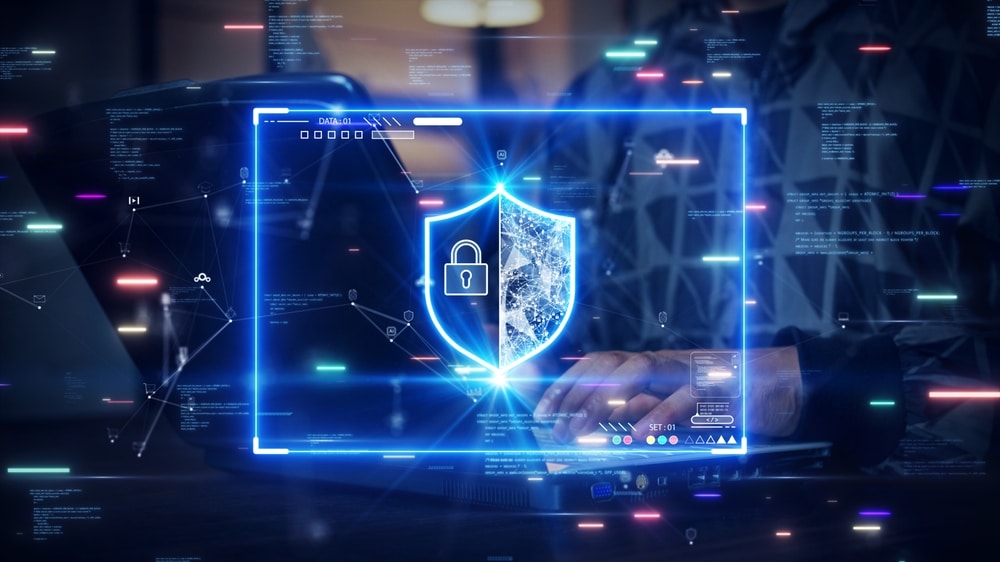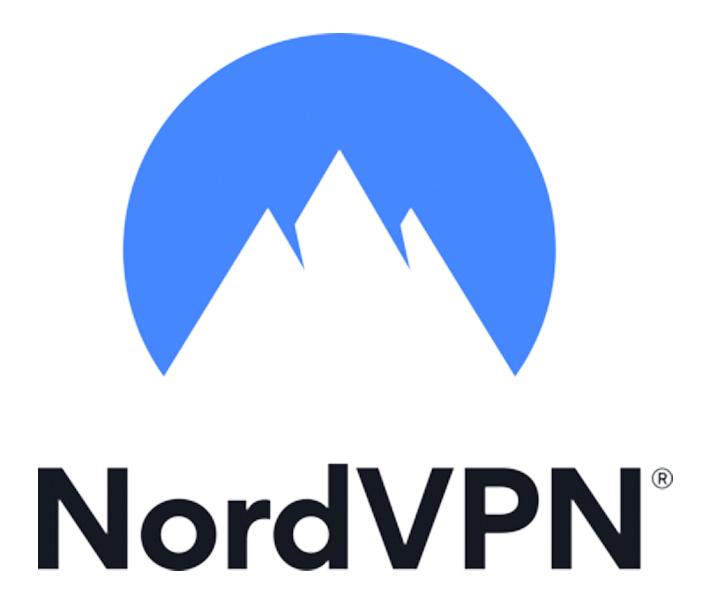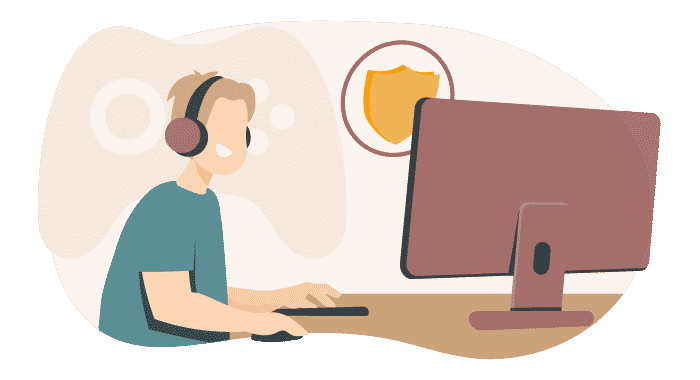Spionvare – Hva er det, og hvordan kan jeg forhindre det?
Sist oppdatert: 31/03/2025
Spionvare er en type ondsinnet programvare som i det skjulte infiserer enheten din, samler inn informasjon om deg og sender den til en tredjepart uten ditt samtykke. De spionerer på aktivitetene dine – de sporer hva du skriver, hvilke nettsteder du besøker, og de registrerer til og med personopplysninger som passord eller kredittkortnumre. Dette gjør spionprogrammer ekstremt farlige, ettersom de kan føre til identitetstyveri, økonomisk svindel, brudd på personvernet og annen skade hvis sensitiv informasjon misbrukes. Ofte kjører spionprogrammer lydløst i bakgrunnen, slik at du kanskje ikke engang oppdager at enheten din er infisert før skaden er skjedd. Kort sagt er spionprogramvare som en digital spion som gjemmer seg i telefonen eller datamaskinen din, overvåker alt du gjør og setter sikkerheten din i fare.
Hvordan spionprogrammer infiserer enheter
Spionvare dukker ikke opp på enheten din på magisk vis – den må finne en vei inn. Angriperne bruker en rekke ulike triks og taktikker for å infisere ofrene med spionprogrammer. Nedenfor finner du noen av de vanligste infeksjonsmetodene, inkludert phishing, ondsinnede nedlastinger og usikrede nettverk:
- Phishing-e-post og ondsinnede lenker: En av de vanligste måtene spionprogrammer sprer seg på, er gjennom phishing – falske e-poster eller meldinger som lurer deg til å klikke på skadelige lenker eller åpne infiserte vedlegg. Svindlere sender ofte e-poster som utgir seg for å være legitime institusjoner (banken din, en tjenesteleverandør osv.), og oppfordrer deg til å klikke på en lenke eller laste ned en fil. Hvis du går på limpinnen, kan et skjult installasjonsprogram for spionprogrammer kjøre. E-postvedlegg er like farlige – hvis du åpner et ukjent vedlegg (for eksempel en falsk faktura eller et falskt dokument), kan du i all hemmelighet installere et spionprogram. Kort sagt, hvis du “åpner e-postvedlegg fra ukjente avsendere ” eller “klikker på en lenke til et nettsted med skadelig programvare “, kan du invitere inn spionprogramvare på enheten din. Vær alltid mistenksom overfor uoppfordrede e-poster eller meldinger der du blir bedt om å klikke på noe som haster.
- Skadelige eller uoffisielle nedlastinger: En annen vanlig smittevei er nedlasting av programvare eller apper fra upålitelige kilder. Nettkriminelle skjuler ofte spionprogrammer i gratis programvare, piratkopierte spill, cracks eller skjermsparere. Når du installerer det fristende “gratis” programmet, kan du også installere en spionprogramvare. Bare det å “laste ned programvare fra en upålitelig kilde ” eller piratkopiere mediefiler kan føre til en spionprogramvareinfeksjon. Spionprogrammet kan være inkludert i appinstallasjonsprogrammet eller være forkledd som et harmløst verktøy. Hold deg alltid til offisielle appbutikker og pålitelige nettsteder for nedlastinger. Sjekk anmeldelser og utgiverinformasjon før du installerer ny programvare.
- Usikrede offentlige Wi-Fi-nettverk: Bruk av offentlige Wi-Fi-nettverk (f.eks. på flyplasser, kafeer eller hoteller) kan sette deg i fare for å bli utsatt for spionprogrammer, spesielt hvis nettverket ikke er sikret. Hackere på det samme åpne nettverket kan utføre MITM-angrep (man-in-the-middle) for å avlytte nettrafikken din eller til og med injisere skadelig programvare i nettleserøkten din. Offentlig Wi-Fi som ikke er kryptert, gjør det mulig for angripere å avlytte data du sender og mottar. Enda verre er det at de kan utnytte sikkerhetshull på enheten din til å legge inn spionprogrammer på den. Når du kobler deg til offentlig Wi-Fi, kan du faktisk bli utsatt for angrep fra ondsinnede aktører på nettverket – de kan utnytte sårbarheter i enhetens programvare til å installere ondsinnede programmer (inkludert spionprogrammer) uten at du vet om det. En angriper kan for eksempel kapre HTTP-nettrafikken din og legge inn spionprogrammer i en filnedlasting eller et skript på en nettside. Usikrede nettverk (eller useriøse “gratis Wi-Fi-hotspots” som hackere setter opp) er et arnested for slike angrep. Derfor er det farlig å bruke offentlig Wi-Fi til sensitive aktiviteter med mindre du tar forholdsregler (som vi skal komme tilbake til, er VPN en god forholdsregel her).
- Andre metoder: Utover de tre store metodene ovenfor finnes det flere måter spionprogrammer kan infiltrere enheter på. Sosial manipulering spiller en rolle – noen ganger kan en popup-annonse hevde “Enheten din er infisert! Klikk her for å rense den”, men hvis du klikker, installeres det i virkeligheten spionprogramvare. Det kan være risikabelt å godta meldinger eller popup-vinduer uten å lese dem. Spionvare kan også utnytte sårbarheter i programvaren – hvis operativsystemet eller appene dine er utdaterte, kan hackere bruke kjente utnyttelsesmuligheter til å legge spionvare på systemet ditt. I noen tilfeller kan bare det å besøke et kompromittert nettsted (spesielt hvis nettleseren/plugins er utdatert) resultere i en drive-by-nedlasting av spionprogramvare. Flyttbare medier som USB-stasjoner kan også inneholde spionprogrammer. Hovedpoenget er at angriperne vil bruke enhver åpning – fra brukerfeil (som å klikke på feil ting) til tekniske feil – for å infisere enheter med spionprogramvare. Ved å være klar over disse metodene kan du være på vakt mot infeksjoner.

Hvordan VPN-tjenester bidrar til å forhindre spionprogrammer
Et VPN (Virtual Private Network) er en tjeneste som krypterer internettforbindelsen din og sender den gjennom en sikker server. Selv om et VPN ikke er et antivirusprogram eller et verktøy for fjerning av skadelig programvare som allerede finnes på enheten din, kan det redusere risikoen for å få spionprogramvare i utgangspunktet. VPN-er beskytter deg først og fremst på nettet – de sikrer dataene dine under overføring og bidrar til å opprettholde personvernet. Her er noen av måtene VPN kan bidra til å forhindre spionprogramvareinfeksjoner på:
Kryptert trafikk – beskyttelse på usikrede nettverk: Et VPN krypterer alle dataene du sender over Internett. Denne krypterte tunnelen betyr at selv om en hacker fanger opp trafikken din (for eksempel på offentlig Wi-Fi), kan de ikke lese eller endre den. Krypteringen krypterer dataene dine til et volapyk som bare VPN-serveren kan dekode. Dette beskytter deg mot den typen Wi-Fi-avlytting og MITM-angrep som ofte leverer spionprogrammer. På et åpent Wi-Fi-nettverk på en kafé kan for eksempel en angriper prøve å avlytte tilkoblingen din for å injisere skadelig programvare – men hvis du er koblet til et VPN, er tilkoblingen din “innkapslet” i sterk kryptering, slik at tredjeparter ikke kan sette inn eller se noe som helst. På denne måten fungerer et VPN som en sikker tunnel gjennom et farlig område: Selv om spionprogramvare lurer på nettverket, er det ikke så lett å få tak i den krypterte datastrømmen din. Dette reduserer risikoen for å bli rammet av drive-by-nedlastinger eller exploit kits når du surfer på upålitelige nettverk dramatisk.
Anonym surfing – skjuler IP-adressen og identiteten din: Når du bruker et VPN, skjuler det også den virkelige IP-adressen din og erstatter den med IP-adressen til VPN-serveren. Dette gir deg et lag med anonymitet når du surfer. Hvorfor er det viktig for spionprogrammer? Fordi IP-adressen din kan avsløre hvor du befinner deg, og den brukes ofte til å målrette angrep. Med et VPN maskerer du effektivt identiteten din på nettet, noe som gjør det vanskeligere for angripere å finne deg eller rette angrep direkte mot enheten din. I tillegg kommer mange spionvareinfeksjoner gjennom ondsinnede annonser eller sporere på nettsteder. Et VPN vil ikke stoppe alle annonser, men ved å maskere identiteten din og noen ganger blokkere sporere, kan det redusere den personaliserte målrettingen som adware/spionprogramvarenettverk bruker. Anonym surfing betyr i bunn og grunn mindre eksponering – du etterlater færre spor som potensielle snokere kan bruke til å distribuere spionprogrammer.
Sikre tilkoblinger (HTTPS og DNS): VPN-tjenester bidrar til sikrere tilkoblinger generelt. De fleste VPN-tjenester av høy kvalitet tvinger all trafikken din gjennom krypterte kanaler og sørger ofte for at du bruker sikre protokoller. Et godt VPN vil for eksempel sende nettforespørsler som HTTPS når det er mulig (eller til og med rute DNS-forespørslene dine på en sikker måte – mer om DNS senere). Dette betyr at selv om du ved et uhell besøker et HTTP-nettsted på offentlig Wi-Fi, vil VPN-krypteringen fortsatt beskytte det. Noen spionprogrammer prøver også å omdirigere trafikken din til falske nettsteder (gjennom DNS-kapring) eller avskjære DNS-spørringene dine for å sende deg til ondsinnede domener. Et VPN kan forhindre dette ved å inkludere DNS-oppslagene dine i den krypterte tunnelen, slik at de ikke kan ses eller manipuleres av utenforstående. Kort sagt sørger et VPN for at alle aspekter av tilkoblingen din er sikre – ikke bare innholdet på nettsiden, men også bakgrunnsoppslagene og andre signaler. Denne helhetlige krypteringen gjør det mye vanskeligere for spionprogrammer å snike seg inn via triks på nettverksnivå.
Blokkering av skadelige nettsteder og annonser (VPN-sikkerhetsfunksjoner): Selv om kryptering og anonymitet er de viktigste fordelene med alle VPN-tjenester, tilbyr mange moderne VPN-tjenester innebygde sikkerhetsfunksjoner som direkte kan blokkere skadelig programvare. Noen VPN-tjenester har for eksempel svartelister over farlige nettsteder eller annonsenettverk som er kjent for å spre skadelig programvare. Hvis du prøver å besøke en kjent phishing- eller skadevare-nettside, kan VPN-et blokkere forespørselen, slik at du ikke engang får lastet inn den fellefangede siden. Disse VPN-tjenestene kan også blokkere annonser og sporere, som ofte brukes av spionprogrammer til å overvåke aktiviteten din. Dette betyr færre sjanser til å støte på spionprogrammer ute i naturen. Ved å filtrere bort ondsinnet innhold på nettverksnivå kan VPN forhindre at du utilsiktet laster ned spionprogramvare eller havner på et infisert nettsted. Det er som å ha en sikkerhetsvakt for internettforbindelsen din – mange trusler blir avvist før de noen gang når nettleseren din.
Beste VPN-funksjoner for beskyttelse mot spionprogrammer
Ikke alle VPN-er er like gode når det gjelder sikkerhet. Hvis du vil ha et VPN som spesifikt beskytter mot spionprogrammer og annen skadelig programvare, bør du se etter følgende nøkkelfunksjoner. Disse funksjonene legger til ekstra lag med beskyttelse for å sikre at VPN-et ditt ikke bare er privat, men også trygt mot lekkasjer eller uventede avsløringer.
Beskyttelse mot DNS-lekkasjer
En viktig funksjon er DNS-lekkasjebeskyttelse. DNS (Domain Name System) er som internettets adressebok – enheten din bruker DNS til å oversette nettstedsnavn (som example.com) til IP-adresser. Normalt kan disse DNS-spørringene potensielt “lekke” utenfor VPN-et (for eksempel ved å gå til Internett-leverandørens DNS-server i stedet for gjennom VPN-et). Hvis det skjer, kan en spion eller angriper se hvilke nettsteder du besøker, selv om hovedtrafikken din er kryptert. DNS-lekkasjer kan også utnyttes av angripere (spesielt på kompromitterte nettverk) til å sende deg til falske nettsteder. VPN-tjenester med DNS-lekkasjebeskyttelse sørger for at alle DNS-forespørsler går gjennom den krypterte VPN-tunnelen og bruker VPN-tjenestens sikre DNS-servere.
Kill Switch
En nødstoppbryter er en annen VPN-funksjon som er et must for sikkerheten. En kill-switch er i utgangspunktet en sikkerhetsbryter som automatisk kutter internettilgangen din hvis VPN-tilkoblingen uventet faller ut. Dette forhindrer utilsiktet eksponering av din virkelige IP eller ukryptert trafikk i slike tilfeller. Hvorfor er dette viktig for å forebygge spionprogrammer? Tenk deg at du laster ned en fil eller surfer på offentlig Wi-Fi med et VPN på, og at VPN-et plutselig kobles fra på grunn av en nettverkshikke. Uten en nødstoppbryter vil enheten din umiddelbart gå tilbake til den vanlige, ubeskyttede tilkoblingen – og i dette tidsrommet kan en angriper sniffe trafikken din eller angripe deg. Med en nødstoppbryter aktivert, derimot , vil internettforbindelsen din bli satt på pause helt og holdent, slik at ingen data kan gå ut eller komme inn før den sikre tunnelen er gjenopprettet.
Blokkering av skadelig programvare og phishing
Som nevnt tidligere, tilbyr noen VPN-tjenester innebygde blokkeringer eller filtre mot skadelig programvare. Disse kan ha ulike navn (CleanWeb, CyberSec, Threat Protection osv.), men ideen er den samme: VPN-klienten vil aktivt blokkere kjente skadelige domener, phishing-nettsteder og noen ganger til og med skanne nedlastinger for skadelig programvare. Denne funksjonen er svært nyttig når det gjelder å forhindre spionprogrammer, fordi den hindrer deg i å besøke nettopp de stedene der spionprogrammene skjuler seg.
Sikre VPN-protokoller og krypteringsstandarder
Til slutt bør du være oppmerksom på VPN-protokollene og krypteringsstandardene en tjeneste bruker. VPN-“protokoller” er metodene som brukes til å innkapsle og transportere dataene dine på en sikker måte. Noen protokoller er mye sikrere enn andre. For å få god beskyttelse mot spionprogrammer bør du velge et VPN som bruker moderne, pålitelige protokoller som OpenVPN eller WireGuard, kombinert med robust kryptering (for eksempel AES-256). Disse protokollene sikrer at tilkoblingen din ikke bare er kryptert, men også motstandsdyktig mot manipulering eller dekoding fra angripere.

Ytterligere sikkerhetstiltak
Et VPN er et kraftig verktøy for personvern og sikkerhet, men det bør ikke være ditt eneste forsvar mot spionprogrammer. Tenk på et VPN som ett lag i en flerlags sikkerhetsstrategi. For å beskytte deg fullt ut mot spionprogrammer, må du praktisere gode nettsikkerhetsvaner ved siden av å bruke et VPN. Her er noen ekstra sikkerhetstiltak du kan implementere:
- Bruk antivirus-/antispionvareprogramvare: Kjør alltid anerkjente antivirus- eller antispionvareprogrammer på enhetene dine. Et antivirusprogram vil oppdage og blokkere mange typer skadelig programvare, inkludert spionprogrammer, hvis de noen gang kommer seg inn på systemet ditt. Hold sikkerhetsprogramvaren oppdatert, slik at den kan gjenkjenne de nyeste truslene. Dette gir et avgjørende ekstra lag hvis noe omgår VPN-et ditt – for eksempel hvis du ved et uhell kjører en spionprogramvarefil, kan antivirusprogrammet fange den opp og fjerne den.
- Hold operativsystemet og appene oppdatert: Oppdater operativsystemet, nettleseren og alle applikasjoner jevnlig. Programvareoppdateringer inneholder ofte sikkerhetsoppdateringer for nye sårbarheter. Ved å holde deg oppdatert tetter du kjente sikkerhetshull som spionprogrammer kan utnytte. Slå på automatiske oppdateringer hvis det er mulig, slik at du ikke går glipp av kritiske oppdateringer. En fullt oppdatert enhet er et vanskeligere mål for skadevare.
- Vær forsiktig med e-poster og lenker: Ha trygge klikkvaner. Ikke åpne vedlegg eller klikk på lenker i e-poster eller meldinger fra ukjente avsendere. Selv om avsenderen ser kjent ut, bør du være på vakt mot uventede vedlegg eller merkelige lenkeadresser (de kan være forfalsket).
- Bruk sterke passord og 2FA: Bruk sterke, unike passord for alle kontoer og enheter, og aktiver tofaktorautentisering der det er mulig. Dette forhindrer ikke spionprogrammer i seg selv, men det kan begrense skaden. Noen spionprogrammer logger for eksempel tastetrykk for å stjele passord – men hvis du har 2FA, vil tyven fortsatt trenge den andre faktoren for å bryte seg inn på kontoen din.
- Unngå usikret Wi-Fi (eller bruk et VPN): Risikoen ved offentlig Wi-Fi ble diskutert tidligere – du bør unngå å bruke usikrede Wi-Fi-nettverk når du kan, eller alltid bruke VPN på dem. Hvis du er ute og reiser, kan det være tryggere å bruke mobildata eller et pålitelig hotspot i stedet for tilfeldig gratis Wi-Fi.
- Last ned med omtanke og bruk offisielle kilder: Last bare ned apper og filer fra offisielle eller anerkjente kilder. Hold deg til Google Play Store, Apple App Store eller verifiserte utgivernettsteder. Unngå fristelsen til å installere piratkopiert programvare eller “crackede” apper – dette er viktige spyware-vektorer.
- Sikkerhetskopier dataene dine: Ta regelmessig sikkerhetskopi av viktige data fra enhetene dine (enten til en ekstern harddisk eller en sikker skytjeneste). I tilfelle en spionprogramvareinfeksjon skulle oppstå og du må slette enheten, vil du ikke miste viktige filer.
Ved å kombinere disse tiltakene med et VPN dekker du flere baser. VPN-et sikrer tilkoblingen og personvernet ditt, antivirusprogrammet fanger opp skadelige filer, oppdateringer tetter sårbarheter, og de gode surfevanene dine reduserer sjansen for å gå i feller. Denne flerlagstilnærmingen er den beste måten å beskytte seg mot spionprogrammer på.
Konklusjonen er at bruk av et VPN kan være et svært effektivt tiltak for å forhindre spionprogramvareinfeksjoner. Den krypterte tunnelen i et VPN beskytter deg mot avlytting på usikre nettverk og stenger for mange av de vanligste veiene som spionprogrammer kan snike seg inn på enheten din gjennom. Det er imidlertid viktig å huske at ingen enkeltverktøy kan garantere 100 % sikkerhet. VPN-er adresserer de nettverksbaserte risikoene og forbedrer personvernet, men du må også forsterke selve enheten og praktisere sikker atferd. Kombinasjonen av en pålitelig VPN-tjeneste og smarte nettsikkerhetsvaner (antivirus, oppdateringer, forsiktige klikk osv.) gir et robust forsvar mot spionprogrammer. Hold deg trygg der ute!
Anbefalte VPN-tjenester og hvordan de bidrar til å beskytte mot spionprogrammer
ExpressVPNExpressVPN er kjent for sine raske servere og avanserte sikkerhetsprotokoller, og tilbyr deg en trygg og anonym måte å strømme innhold på uten avbrudd. Den førsteklasses krypteringen beskytter dataene dine mot nysgjerrige øyne og bidrar til å forhindre spionprogrammer fra å spore aktivitetene dine. Enten du er hjemme eller på et offentlig nettverk, kan du med den brukervennlige appen koble deg til en sikker server på få sekunder, slik at du kan begynne å strømme raskt og med ro i sinnet.
Prøv ExpressVPNNordVPNNordVPN er et robust alternativ for strømming uten begrensninger, samtidig som personopplysningene dine er sikre. Takket være dobbel kryptering og en streng policy mot loggføring, forblir dine private data anonyme og er mye vanskeligere for spionprogrammer å få tilgang til. Den innebygde CyberSec-funksjonen blokkerer også ondsinnede nettsteder og påtrengende annonser som kan inneholde spionprogramvare, noe som gir deg en tryggere og mer stabil strømmeopplevelse.
Prøv NordVPNSurfsharkSurfshark er et rimelig alternativ som likevel gir høy ytelse og sterk beskyttelse mot spionprogrammer. CleanWeb-funksjonen blokkerer automatisk annonser, ondsinnede nettsteder og sporere, noe som reduserer risikoen for å støte på spionprogrammer mens du strømmer. Surfshark støtter også ubegrenset antall samtidige tilkoblinger, slik at alle i husstanden kan strømme sikkert på flere enheter – alt under én konto.
Prøv Surfshark


